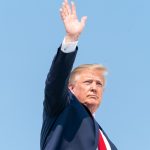Senate Armed Services Committee Chairman Roger Wicker recently triggered a few political fire alarms with his critical remarks regarding Defense Secretary Pete Hegseth’s stance on Ukraine. While Wicker’s harsh criticism raised eyebrows among pundits, his office quickly issued a statement suggesting a warm reconciliation was in the works. Apparently, after a weekend chat, Wicker and Hegseth are still on the same page about the crucial mission to rebuild the U.S. military and revitalize the defense industrial base, objectives supposedly aligned with President Trump’s “peace through strength” philosophy.
Hegseth’s bold remarks delivered at the NATO headquarters in Brussels last week seemed to clash with the more traditional views held by some Republicans. He made it abundantly clear that he thinks NATO should not invite Ukraine to join, referred to any ambition of returning to Ukraine’s pre-2014 borders as “unrealistic,” and emphasized the absence of U.S. troops in the region moving forward. Instead, he suggested Europe should take the security reins and proposed a European-led peacekeeping mission. While the Europeans may have been left reeling by Hegseth’s straightforward approach, one has to wonder if the blunt truths he presented are what the military-industrial complex is secretly afraid to confront.
We can bring small business people into the defense production process to help our deterrence. I am excited to work with @PeteHegseth toward that goal. pic.twitter.com/A4qISrx6zT
— Senator Roger Wicker (@SenatorWicker) February 13, 2025
In a delightful twist of irony, Wicker characterized Hegseth’s bluntness as a “rookie mistake.” Yes, the senator, well known for his hawkish stance on Russia, seemed ready to throw the defense secretary under the bus over remarks that aligned more with realism than with the fairy tales politicians love to spin. Wicker even criticized the very speech Hegseth delivered, saying it sounded like something Tucker Carlson might have penned—essentially tossing insults at both Carlson and Hegseth. The political drama unfolded as Wicker lamented that one shouldn’t outline agreements and refusals before a first meeting. It’s almost as if he forgot that truth has a way of penetrating political niceties.
However, Trump himself appeared to step right back into the spotlight mere days later with similar sentiments regarding NATO’s involvement and Ukraine’s future. His assertion that Ukraine joining NATO was impractical wasn’t a far cry from the points Hegseth raised. So, was Hegseth’s objective speaking a rookie mistake, or Wicker taking a detour down the path of political correctness? One can’t help but chuckle at the contrast between Wicker’s stance and Trump’s, especially when a self-described “staunch Ukraine supporter” like Wicker grapples with unexpected agreements from the man whose shadow looms large over Republican politics.
Despite appearing to align with Hegseth after the chilly reception of his statements, Wicker remains a vocal critic of any suggestions of easing sanctions against Russia or allowing the country back into G7 discussions. He continues to push for increased military funding for Ukraine, advocating a strategy that keeps the U.S. heavily involved in the conflict, even as the administration itself appears to be conflicted. In a world where political opinions shift quicker than game show contestants spinning for a prize, Wicker stands resolutely on a platform that holds Putin as a villain and Ukraine as a hero. Yet, as elections loom and the political winds shift, one must remain amused at the spectacle of party leaders wrestling with their opinions while navigating the complexities of international diplomacy.




